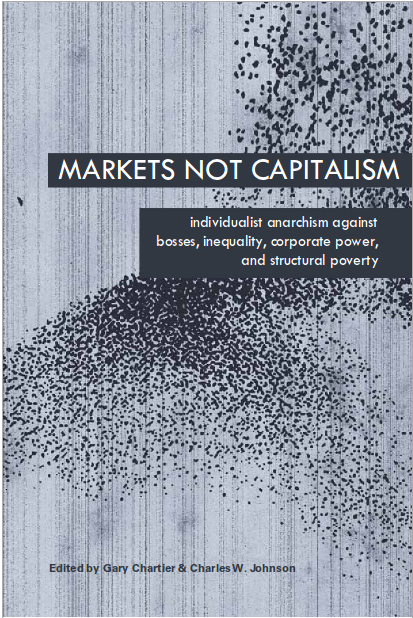David Graeber: Revolutions in Reverse: Essays on Politics, Violence, Art and Imagination (2011)
Filed under book | Tags: · altruism, anarchism, anthropology, art, autonomy, capitalism, communism, debt, politics, violence

Capitalism as we know it appears to be coming apart. But as financial institutions stagger and crumble, there is no obvious alternative. There is good reason to believe that, in a generation or so, capitalism will no longer exist: for the simple reason that it’s impossible to maintain an engine of perpetual growth forever on a finite planet. Yet faced with this prospect, the knee-jerk reaction is often to cling to what exists because they simply can’t imagine an alternative that wouldn’t be even more oppressive and destructive. The political imagination seems to have reached an impasse. Or has it?
In this collection of essays David Graeber explores a wide-ranging set of topics including political strategy, global trade, debt, imagination, violence, aesthetics, alienation, and creativity. Written in the wake of the anti-globalization movement and the rise of the war on terror, these essays survey the political landscape for signs of hope in unexpected places.
At a moment when the old assumption about politics and power have been irrefutably broken the only real choice is to begin again: to create a new language, a new common sense, about what people basically are and what it is reasonable for them to expect from the world, and from each other. In this volume Graeber draws from the realms of politics, art, and the imagination to start this conversation and to suggest that that the task might not be nearly so daunting as we’d be given to imagine.
Publisher Minor Compositions, an imprint of Autonomedia, November 2011
ISBN 1570272433, 978-1-57027-243-1
120 pages
PDF (PDF; updated on 2012-8-26)
PDF (EPUB; added on 2012-8-26)
PDF (MOBI; added on 2012-8-26)
View online (Scribd.com)
Gary Chartier, Charles W. Johnson (eds.): Markets Not Capitalism: Individualist Anarchism Against Bosses, Inequality, Corporate Power, and Structural Poverty (2011)
Filed under book | Tags: · activism, anarchism, capitalism, communism, economics, economy, market, neoliberalism, protest, revolution, socialism

Individualist anarchists believe in mutual exchange, not economic privilege. They believe in freed markets, not capitalism. They defend a distinctive response to the challenges of ending global capitalism and achieving social justice: eliminate the political privileges that prop up capitalists.
Massive concentrations of wealth, rigid economic hierarchies, and unsustainable modes of production are not the results of the market form, but of markets deformed and rigged by a network of state-secured controls and privileges to the business class. Markets Not Capitalism explores the gap between radically freed markets and the capitalist-controlled markets that prevail today. It explains how liberating market exchange from state capitalist privilege can abolish structural poverty, help working people take control over the conditions of their labor, and redistribute wealth and social power.
Featuring discussions of socialism, capitalism, markets, ownership, labor struggle, grassroots privatization, intellectual property, health care, racism, sexism, and environmental issues, this unique collection brings together classic essays by leading figures in the anarchist tradition, including Proudhon and Voltairine de Cleyre, and such contemporary innovators as Kevin Carson and Roderick Long. It introduces an eye-opening approach to radical social thought, rooted equally in libertarian socialism and market anarchism.
Publisher Minor Compositions, an imprint of Autonomedia, November 2011
ISBN 978-1-57027-242-4
440 pages
PDF (added on 2014-12-22)
Scribd
Slavoj Žižek, Costas Douzinas (eds.): The Idea of Communism (2010)
Filed under book | Tags: · communism, left, philosophy, political theory, politics, socialism

“Responding to Alain Badiou’s ‘communist hypothesis’, the leading political philosophers of the Left convened in London in 2009 to take part in a landmark conference to discuss the perpetual, persistent notion that, in a truly emancipated society, all things should be owned in common. This volume brings together their discussions on the philosophical and political import of the communist idea, highlighting both its continuing significance and the need to reconfigure the concept within a world marked by havoc and crisis.”
With contributions by Alain Badiou, Judith Balso, Bruno Bosteels, Susan Buck-Morss, Costas Douzinas, Terry Eagleton, Peter Hallward, Michael Hardt, Jean-Luc Nancy, Antonio Negri, Jacques Rancière, Mark Russo, Alberto Toscano, and Gianni Vattimo.
Publisher Verso, 2010
ISBN 184467455X, 9781844674558
230 pages
PDF (updated on 2012-7-15)
Comment (0)
